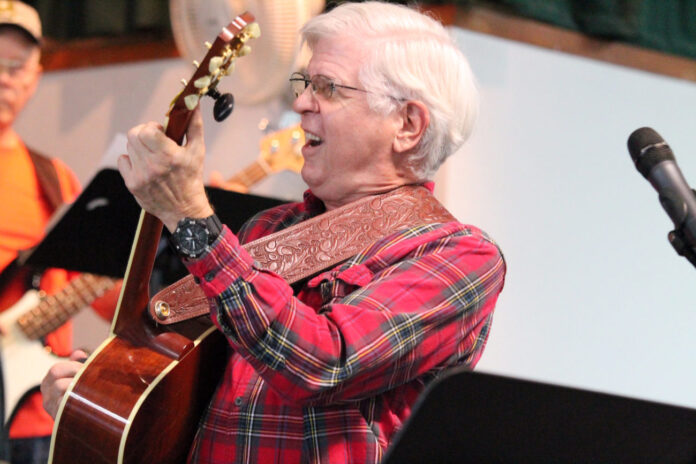Lise Ferland-St-Pierre planned on being in the Rio Grande Valley by November.
She and her husband have traveled from their Eastern Townships home in Quebec to the Alamo Rec-Veh Park for the past two winters, part of an influx of thousands of seasonal residents who bring hundreds of thousands of dollars to the Valley every year.
Many of those residents are expected to return this year, and they can even expect to be greeted by many of the in-park performances and activities that are a staple of wintertime in the Valley’s RV parks — although those activities will likely be somewhat diminished by pandemic policies and the absence of residents like Ferland-St-Pierre, who has resigned herself to being trapped in snowy Quebec for the winter.
“The border’s still closed, so we’re not planning on going this year,” she said.
The land border between Canada and the United States is set to stay closed through Oct. 21, the way it has been for the past seven months.
Last week, Canadian Prime Minister Justin Trudeau hinted that that reopening date would once again be suspended. Even if the border does open to land travel other hurdles stand in front of the Valley’s winter visitors, including unavailable or prohibitively expensive medical insurance for Canadians living in the U.S.
“For the pandemic, we can’t be insured, so if we have no insurance, we can’t go for sure,” Ferland-St-Pierre said.
She’s disappointed she’s not coming to the Valley. It was in the 30s in Quebec on Sunday.
Other Canadian winter visitors, often referred to as snowbirds, have been more intrepid, including some residents of Pine to Palm Resort Park in Weslaco.
“One of them is flying in tomorrow from Winnipeg,” Park Manager Blanca Beltran said. “Some are still coming down if they can fly out, but they cannot travel on wheels.”
Pine to Palm is a favorite for winter visitors from Canada. Canadians account for 453 of the park’s 619 residents.
The park, Beltran says, has been quiet. Only a handful of Canadian snowbirds have arrived by air, but she says many of the others are still waiting in the wings.
The park gives its residents bi-weekly COVID-19 advisories, and residents frequently call to ask about how the pandemic is progressing in the Valley.
Sometimes Canadians say they’re not coming at all, Beltran says. Other times they say they’re planning on coming a few months late.
“We do have people waiting for the ban to lift on travel or something, the vaccine,” she said. “Some people have not made up their mind yet.”
Pine to Palm is a shareholder-owned park where residents own their units and pay a yearly contract fee, Beltran says, and she doesn’t expect the absence of Canadians to affect the business economically. She does expect their absence to affect recreation for her residents and other winter visitors in the area, and to have an economic impact on the region.
“Just because they’re not here, they’re still obligated to make their payments, so the park survives off of what we call pad fees,” she said. “It’s not going to financially impact us, but we have about 20 residents who live here year-round and they are used to having activities come October — dancing, playing cards, shooting pool, shuffleboarding, all this stuff.”
It does look like those activities will continue, although they might be somewhat muted compared to years past.
Rod Graham, owner of the Winter Texan Connection website, posted a survey on his page asking visitors for their thoughts on the pandemic and the 2020-21 season. He’s gotten 76 responses so far, and he estimates about 80% have indicated people are still coming.
“The general feeling I get about actual Winter Texans themselves is that they would rather come down here and follow the guidelines where it’s warm than stay up north and follow the same guidelines where it’s cold,” he said.
Based on the survey and conversations with park managers and activity directors, Graham also feels entertainment will continue in some capacity or another.
“My baseline feeling is that activities and things are going to go on in the parks on a limited basis,” he said. “The parks obviously will be implementing the COVID-related guidelines — masks, social distancing, limited numbers depending on what the county or state says is allowed. Some of the parks are actually looking at setting up outdoor facilities for activities, like maybe setting up a flatbed truck for a stage and putting an entertainment show on outside, or a dance out in the parking lot, something like that.”
It might not be the same show it was last year, but it appears like the show will go on at Valley RV parks this winter.
“It’ll be kind of strange to be dancing with your masks on and all that stuff,” Graham said, “But it might start a new fad.”





